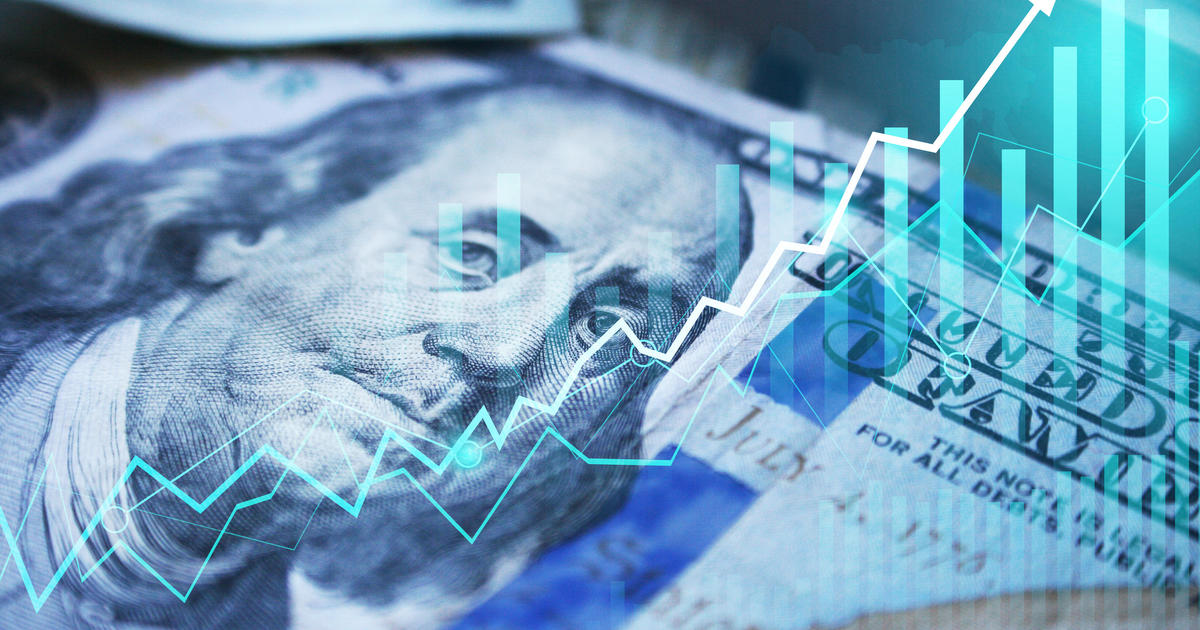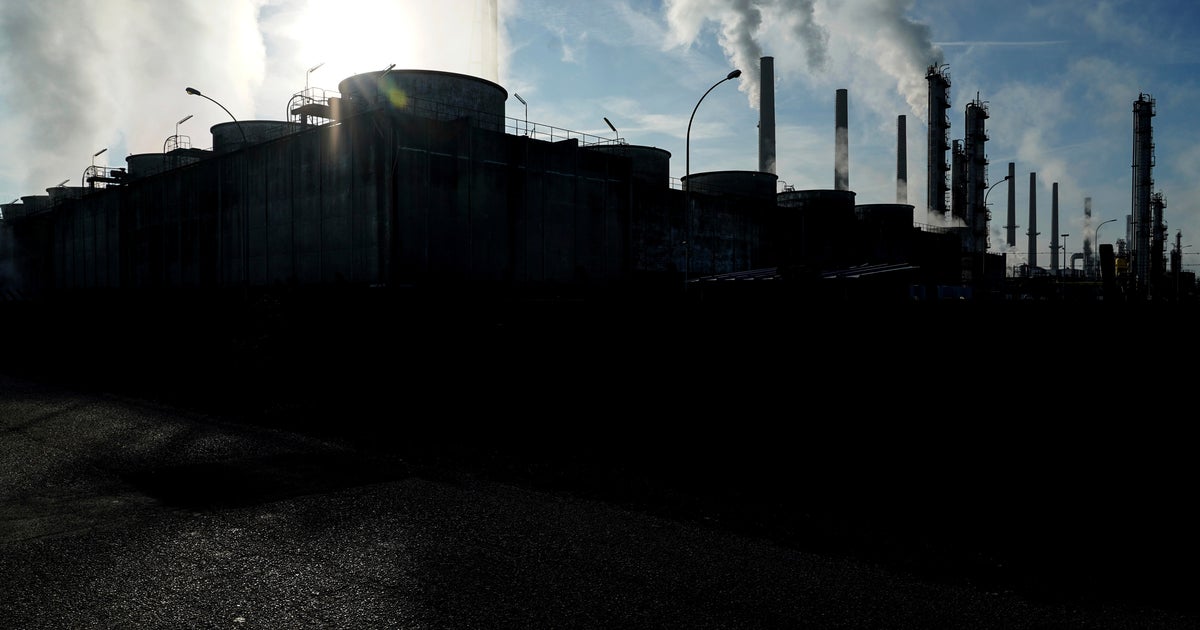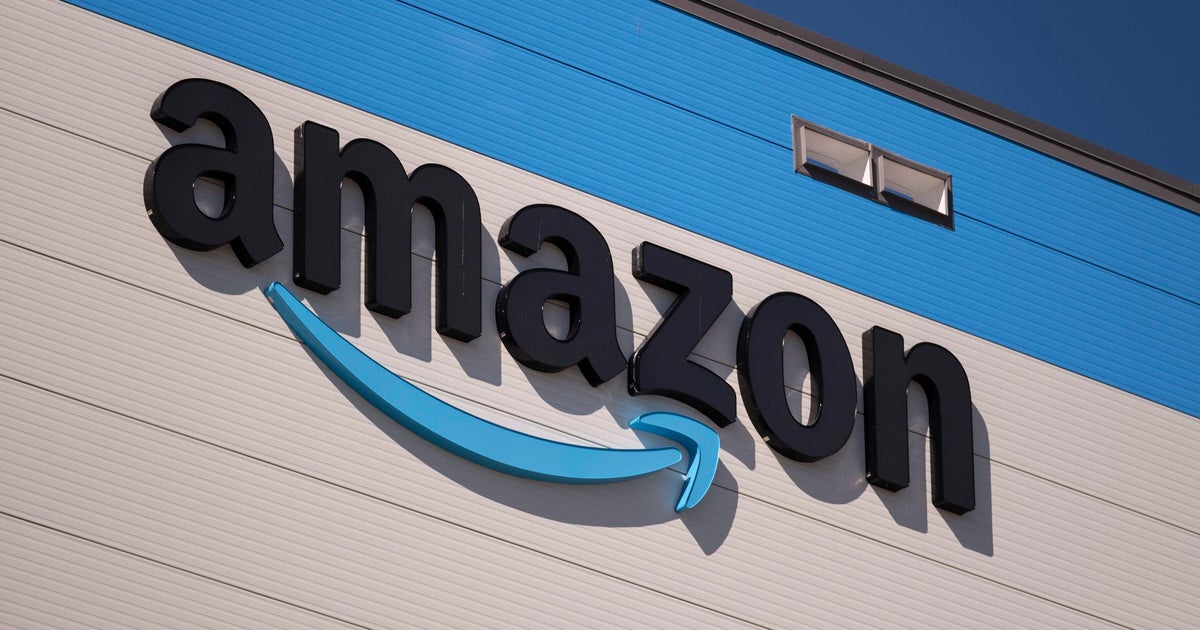CBS News
Why you should open a high-yield savings account with inflation increasing again

Getty Images/iStockphoto
Inflation is on the rise again and American borrowers are likely to feel further pain. That was the sentiment on Wednesday after the latest inflation report from the Bureau of Labor Statistics showed inflation rising to 3.5% in March. That’s up from February’s 3.2% and a full percentage and a half point over the Federal Reserve’s target 2% goal. And while hope was high that the goal was in reach — and interest rate cuts would come in tandem — the new inflation report significantly reduces that likelihood.
But while high inflation and correspondingly high interest rates will keep borrowing costs high, they’ll also maintain the elevated returns savers can secure with select accounts. And one great way to earn those rates now is with a high-yield savings account. Below, we’ll detail three reasons why you should open a high-yield savings account now with inflation increasing again.
See how much more you could be earning with a high-yield savings account here now.
Why you should open a high-yield savings account with inflation increasing again
Here are three compelling reasons why you may want to open this type of savings account now:
Rates are high (and could go higher)
It’s not difficult to find a high-yield savings account with a rate of 5.30% or higher right now. Some savers may even qualify for an account with a 6% rate. That’s a significant amount of money that can be earned simply by transferring your funds from one account to another.
And those rates may go even higher now that inflation is rising again and rate increases appear more likely than they did earlier in the year. But because the rates on high-yield savings accounts are variable and subject to change, it makes sense to be aggressive to earn today’s rates while they’re still high.
Get started with a high-yield savings account here today.
You’re likely losing money
While rates on high-yield savings accounts are elevated, rates on regular savings accounts aren’t nearly as high. The average rate on a regular account now is just 0.47%. So, if you’re keeping your money in one of those accounts versus one of the high-yield ones offering exponentially more interest, you’re essentially losing money. This is a simple mistake to fix, and one that should be corrected rapidly now that inflation is likely to continue to eat away at the purchasing power of your dollars.
CDs are more restrictive
While certificates of deposit (CD) accounts are also advantageous to open right now (they may even have slightly higher rates than high-yield savings accounts) they’re also more restrictive. Savers won’t be able to access their funds quickly without paying an early withdrawal penalty to get it. And the rates on CDs are locked, so if inflation continues to be an issue — and interest rates rise to tame it — the rates on CDs won’t budge. However, high-yield savings account holders will benefit because rates on these accounts can rise (or fall) as the rate climate evolves.
The bottom line
An increase in inflation doesn’t need to be completely detrimental. With an opportunity to earn big returns with a high-yield savings account now, savers can help offset some of the costs of inflation and higher interest rates. With rates on these accounts high now, the rates on regular accounts minimal and the restrictions on CDs discouraging for many, it makes sense to open a high-yield savings account today with inflation increasing again.
CBS News
Biden sets new climate goal for slashing U.S. greenhouse gas emissions

In the final days of his administration, President Biden has set a new climate goal for slashing U.S. greenhouse gas emissions. However, it comes as his successor, President-elect Donald Trump, has signaled he is not interested in global climate negotiations.
The U.S. formally submitted its new goal Thursday to the United Nations. It calls for a 61% to 66% reduction in net greenhouse gas emissions by 2035 compared to 2005 levels, the White House said, with an overarching goal of achieving net zero emissions by no later than 2050.
The new goal is part of the Paris Agreement, under which member nations must update their emission cut targets — known as Nationally Determined Contributions, or NDCs — every five years.
The Paris accord requires countries to set voluntary targets for reducing greenhouse gases such as carbon dioxide. The only binding requirement is that nations accurately report on their efforts. First signed in 2016 by nearly 200 nations, it seeks to limit global warming to no more than 1.5 degrees Celsius above pre-industrial levels.
The new climate commitment “marks an ambitious capstone to President Biden’s climate legacy,” the White House said in a news release, adding that it will help grow a new clean energy economy focused on investment, innovation, and jobs.
“The United States’ new climate commitment offers a clear path forward for states, cities, businesses, and other leaders dedicated to ramping up action over the next four years,” said Debbie Weyl, U.S. acting director for the nonprofit environmental group the World Resource Institute, in a statement. “Even though the Trump administration may not lift a finger to deliver on this plan, it sets a north star for what the U.S. should be aiming for and could help guide the federal government’s priorities once Trump leaves office in 2029,” Weyl said.
In 2017, then-President Trump announced he was withdrawing the U.S. from the Paris Agreement, a process which took until nearly the end of his first term to complete. However, Mr. Biden fulfilled a campaign vow by rejoining the Paris Agreement on the first day of his own administration in early 2021.
Trump has long championed the fossil fuel industry, questioned the science of climate change and weakened other environmental protections.
This year, his campaign said Trump would pull the U.S. from the Paris Agreement a second time.
Last month in Azerbaijan at the annual United Nations climate summit known as COP29, participants adopted a $300 billion annual deal that will go towards helping developing countries wean themselves off coal, oil and gas, and help them adapt to future warming and pay for the damage caused by climate change’s extreme weather.
Mary Cunningham and
contributed to this report.
CBS News
Gisèle Pelicot’s husband found guilty in mass rape trial in France

A judge in France on Thursday found the former husband of Gisèle Pelicot, who admitted to drugging and raping her repeatedly over the course of almost a decade and inviting dozens of other men to assault her as well, guilty of aggravated rape. Over the course of her trial, Pelicot — who insisted her full name be published and proceedings be made public — has been praised for her courage and become a symbol of the fight against sexual violence in France and around the world. The judge on Thursday was reading out verdicts for dozens of other men also accused of raping her.
Pelicot arrived Thursday at the court in Avignon, southeast France, where crowds had gathered outside holding signs saying: “Thank you for your courage.”
The trial began on Sept. 2, and almost every day, Pelicot came face to face with her former husband, Dominique, or one of the 49 other men charged with raping her. One other man faced a charge of aggravated sexual assault. She insisted that videos submitted as evidence, made by her ex-husband showing men sexually assaulting her while she appeared to be unconscious, be shown in open court.
The assaults took place between 2011 and 2020, when Dominique Pelicot was taken into custody. Police found thousands of photos and videos of the abuse on his computer drives, which helped lead them to other suspects. Some of the men testified they thought the unconscious woman was OK with it, or that her husband’s permission was enough.
“Gisèle Pelicot thinks that this shock wave is necessary, so that no one can say after this: ‘I didn’t know this was rape,'” her attorney, Stéphane Babonneau, told The Associated Press.
“It’s not for us to feel shame — it’s for them,” Pelicot said in court, referring to the attackers. “Above all, I’m expressing my will and determination to change this society.”
Controversial French laws
Pelicot’s case triggered protests across France, and there was hope among some demonstrators that the case could lead to changes in controversial French laws governing sexual consent.
France introduced a legal age of sexual consent in 2021 after a public outcry over the rape of an 11-year-old schoolgirl by a man who was initially convicted on a lesser charge. Since then, sex with anyone under the age of 15 has been viewed as non-consensual, but French law does not refer to consent in cases involving older victims.
Under French law, rape is defined as penetration or oral sex using “violence, coercion, threat or surprise,” without taking consent into account, according to the Reuters news agency. Prosecutors must, therefore, prove an intention to rape if they are to be successful in court, legal experts told Reuters.
Just 14% of rape accusations in France lead to formal investigations, according to a study by the Institute of Public Policies.
“Why don’t we manage to obtain convictions? The first reason is the law,” legal expert Catherine Le Magueresse told Reuters. “The law is written in such a way that victims must comply with the stereotype of a ‘good victim’ and a ‘true rape’: an unknown attacker, use of violence, and the victim’s resistance. But it is only true for a minority of rapes.”
“I’m trying to understand”
Speaking in court during the trial, Pelicot, who is 72, talked about how she had thought she was in a loving marriage with her husband and would never have guessed that he was drugging her.
“We would have a glass of white wine together. I never found anything strange about my potatoes,” Pelicot told the court.
“We finished eating. Often when it’s a football match on TV, I’d let him watch it alone. He brought my ice cream to my bed, where I was. My favorite flavor — raspberry — and I thought: ‘How lucky I am. He’s a love.'”
She said she didn’t have any sensation of being drugged.
“I never felt my heart flutter. I didn’t feel anything. I must have gone under very quickly. I would wake up with my pajamas on,” Pelicot told the court, adding that she would sometimes wake up “more tired than usual, but I walk a lot and thought it was that.”
“I’m trying to understand,” she said, “how this husband, who was the perfect man, could have got to this.”
CBS News
Teamsters going on strike against Amazon at several locations nationwide

The International Brotherhood of Teamsters says workers at seven Amazon facilities will begin a strike Thursday morning in an effort by the union to pressure the e-commerce giant for a labor agreement during a key shopping period.
The Teamsters say the workers, who authorized walkouts in the past few days, are joining the picket line after Amazon ignored a Dec. 15 deadline the union set for contract negotiations. Amazon says it doesn’t expect any impact on its operations during what the union calls the largest strike against the company in U.S. history.
The Teamsters say they represent nearly 10,000 workers at 10 Amazon facilities, a small portion of the 1.5 million people Amazon employs in its warehouses and corporate offices.
Amazon is ranked No. 2 on the Fortune 500 list of the nation’s largest companies.
At a warehouse in the New York City borough of Staten Island, thousands of workers who voted for the Amazon Labor Union in 2022 and have since affiliated with the Teamsters. At the other facilities, employees – including many delivery drivers – have unionized with them by demonstrating majority support but without holding government-administered elections.
The strikes happening Thursday are taking place at an Amazon warehouse in San Francisco and six delivery stations in southern California, New York City, Atlanta and the Chicago suburb of Skokie, Illinois, according to the union’s announcement. Amazon workers at the other facilities are “prepared to join” them, the union said.
“Amazon is pushing its workers closer to the picket line by failing to show them the respect they have earned,” Teamsters General President Sean M. O’Brien said in a statement.
“If your package is delayed during the holidays, you can blame Amazon’s insatiable greed. We gave Amazon a clear deadline to come to the table and do right by our members. They ignored it,” he said.
The Seattle-based online retailer has been seeking to re-do the election that led to the union victory at the warehouse on Staten Island, which the Teamsters now represent. In the process, the company has filed a lawsuit challenging the constitutionality of the National Labor Relations Board.
Meanwhile, Amazon says the delivery drivers, which the Teamsters have organized for more than a year, aren’t its employees. Under its business model, the drivers work for third-party businesses, called Delivery Service Partners, who drop off millions of packages to customers everyday.
“For more than a year now, the Teamsters have continued to intentionally mislead the public – claiming that they represent ‘thousands of Amazon employees and drivers’. They don’t, and this is another attempt to push a false narrative,” Amazon spokesperson Kelly Nantel said in a statement. “The truth is that the Teamsters have actively threatened, intimidated, and attempted to coerce Amazon employees and third-party drivers to join them, which is illegal and is the subject of multiple pending unfair labor practice charges against the union.“
The Teamsters have argued Amazon essentially controls everything the drivers do and should be classified as an employer.
Some U.S. labor regulators have sided with the union in filings made before the NLRB. In September, Amazon boosted pay for the drivers amid the growing pressure.



